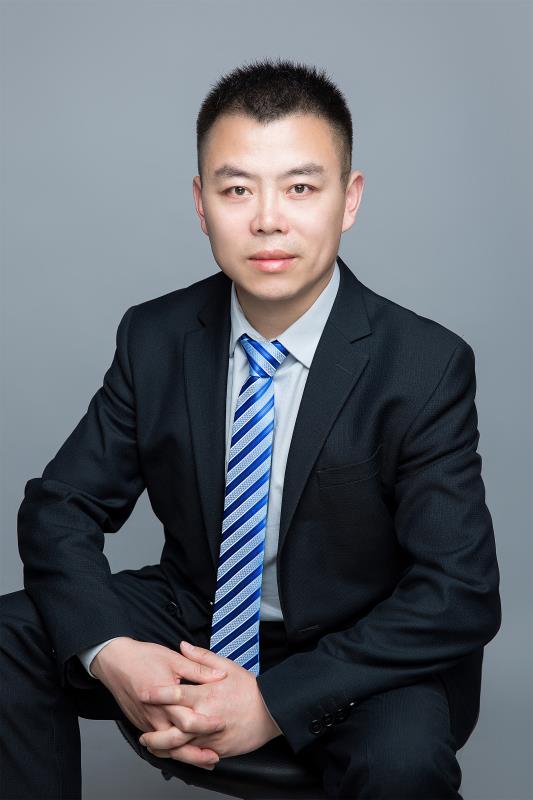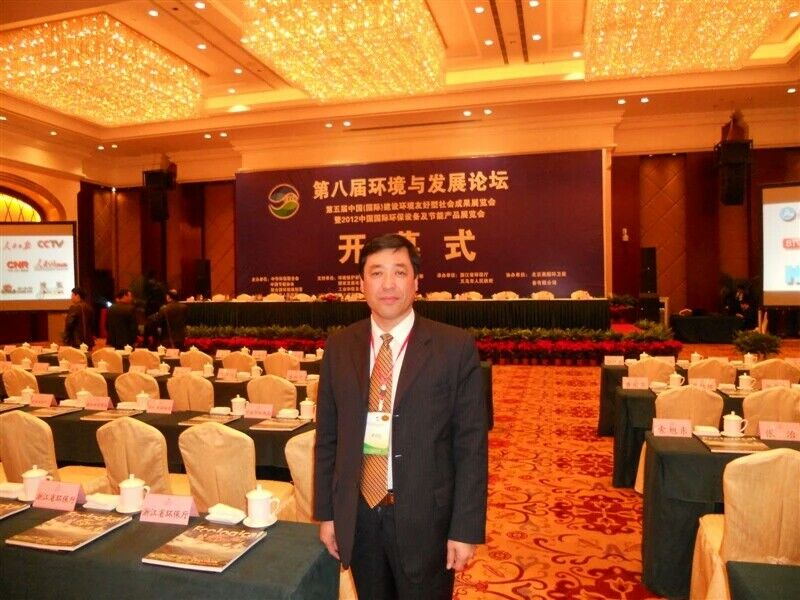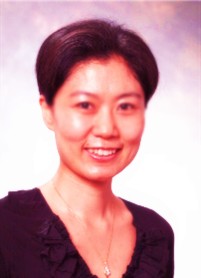The Trial System
The trial system refers to the court system governing the establishment of courts, judges, and trials.
Organization and Responsibilities of People's Courts
According to the current Constitution, and the Law on the Organization of People's Courts, People's Courts represent the main trial organ of the state. Organizationally, this court system consists of local courts, special courts and the Supreme Court, with all the first two subject to the supervision of the latter. Local courts are established in accordance with the administrative divisions, while special courts are set up where necessary.
1. Local courts are divided into three levels: Grassroots, Intermediate and Higher.
Under the Law on the Organization of People's Courts, grassroots-level courts consist of tribunals in counties/autonomous counties, cities without administrative districts, or administrative districts of cities. Their responsibilities are:
Try criminal, civil and administrative cases as courts of first hearing, except where otherwise provided for by law. Cases deemed to be of a serious nature that should be handled by superior courts can be referred to those superior courts;
Handle civil disputes and misdemeanors that do not need trials;
Guide the work of the People's Arbitration Committees.
To facilitate lawsuits, grassroots courts may set up tribunals, which are not trial units, but have the responsibility to hear general civil and misdemeanors, guide the work of People's Arbitration Committees, publicize laws and regulations, and handle petitions. Their judgments and decisions represent the judgments and decisions of the grassroots People's Courts.
Intermediate courts are those set up in prefectures, cities directly under provinces (autonomous regions and municipalities directly under the central government) and districts in the four municipalities directly under the central government (hereinafter referred to as "municipalities"). Their responsibilities include:
Try the following categories of cases:
a) First-hearing cases under their jurisdiction, as prescribed by law. According to the Law on Criminal Procedures, these cases include those involving national security; criminal cases that may involve life imprisonment or the death penalty; criminal cases committed by foreigners or cases involving Chinese citizens violating the lawful rights and interests of foreigners. According to the Law on Civil Procedures, civil cases heard by intermediate courts are major foreign-related cases; cases of major implications within their jurisdictions; and cases that intermediate courts are ordered to hear by the Supreme Court. In addition, according to the Law on Administrative Procedures, intermediate courts are authorized to hear the following cases: verification of patent rights; customs handling; suits against administrative actions taken by State Council departments or governments of the provinces (autonomous regions, municipalities); other important and complicated cases;
b) First-hearing cases transferred by grassroots courts;
c) Cases appealing or protesting the verdicts and decisions of grassroots courts.
For criminal, civil and administrative cases that intermediate courts deem to be of a serious nature, the intermediate court may request that the cases be transferred to superior courts.
Supervise the performance of grassroots courts within their jurisdiction. They have the power to examine or order grassroots courts to re-examine verdicts or decisions issued by those courts that have already taken effect but that have been found to contain errors.
According to the law on court organization, Higher Courts are set up in provinces (autonomous regions and municipalities). Their responsibilities include:
Try the following categories of cases:
a) Criminal, civil and administrative cases of major proportions and complications under their jurisdiction, as provided for by the law;
b) First-hearing cases transferred by lower courts;
c) Cases appealing or protesting the verdicts and decisions made by lower courts. Higher courts in areas where a maritime court is located are authorized to try cases appealing the verdicts and rulings made by the maritime court;
d) Protested cases submitted by prosecutors in accordance with trial-monitoring procedures.
Review first-hearing cases involving the death penalty ruled by intermediate courts where the accused renounces the right to appeal. If the Higher Court raises no objection to the death penalty, it then files the case with the Supreme Court for verification; if it disagrees with the death penalty ruling, it can either re-examine the case or refer the case back to the Intermediate Court.
Review cases submitted by intermediate courts involving a death penalty with two years' reprieve.
Approve certain death-penalty cases as authorized by the Supreme Court.
Supervise trials by lower courts. For verdicts or judgments passed by lower courts that have been found to contain errors, higher courts are authorized to hear or ask lower courts to reexamine the case.
2. Special courts are courts set up in special departments for special cases wherever necessary. Currently, China has special courts handling military, maritime, railway cases.
Military courts are set up at three levels: grassroots; Great Military Region, Services and Arms; and the PLA Court.
The PLA Court is the supreme military court whose responsibilities include:
Try first-hearing cases involving crimes committed by individuals above the division commander level.
Try foreign-related criminal cases.
Try second-hearing cases, verification and review of cases involving death penalty.
Great Military Region and Services and Arms Courts are intermediate courts set up in great military regions, the navy, the air force, the Second Artillery Army and the PLA General Headquarters. Their responsibilities include:
Try first-hearing cases involving crimes committed by individuals at the deputy division commander and regiment level.
Try cases that may involve death penalty and cases under their jurisdiction as authorized or designated by superior military courts.
Try cases appealing or protesting rulings or verdicts passed by lower courts.
Grassroots military courts consist of tribunals set up in armies, provincial military regions, naval fleets, and air forces within Great Military Regions and in army units deployed in Beijing directly under the headquarters. Their responsibilities include:
Try cases involving crimes committed by individuals under the battalion commander level and first-hearing cases that may involve a penalty up to life imprisonment.
Try first-hearing cases under its jurisdiction as authorized or designated by superior military courts.
Maritime courts are special courts set up to try first-hearing maritime or sea-shipping cases for the purpose of exercising judicial jurisdiction over maritime affairs. In May 1989, the Supreme People's Court made a Decision on the Scope of Cases to Be Handled by Maritime Courts. That decision specified that maritime courts handle maritime or commercial cases between Chinese legal persons/citizens, between Chinese legal persons/citizens and foreign legal persons/citizens, and between foreign legal persons/citizens. These cases fall into 14 subsets in five categories:
Ten categories of cases involving maritime torts and disputes, including: damage claim cases involving collision of vessels; damage claim cases involving vessels colliding into buildings and facilities on the sea, sea-linked waters and ports; claim cases involving vessels discharging or leaking hazardous materials or waste water causing water pollution or damaging other vessels or cargo; claim cases involving casualties in the course of sea-borne shipping or operations on the sea, sea-linked waters and ports.
Fourteen categories of commercial cases, including: cases involving shipping contract disputes; contract dispute cases involving passengers and baggage; cases involving seaman labor contract disputes; cases involving maritime rescue and salvage contract disputes; cases involving maritime insurance contract disputes.
Eleven other categories of maritime cases, including: cases involving major liabilities in shipping and maritime operations; cases involving port operation disputes; cases involving general average disputes; cases involving offshore development and exploitation; cases involving the ownership, proprietorship, mortgage or preferred maritime right of claim of vessels; administrative cases involving maritime or inland river authorities; and cases involving maritime fraud.
Five categories of cases involving maritime enforcement, including: cases involving compulsory enforcement requested by maritime and inland river authorities; cases involving applications for enforcement of arbitration awards filed by litigants; cases involving applications filed with Chinese maritime courts by litigants for recognition and enforcement of arbitration awards given by arbitration agencies in foreign countries or regions, in accordance with provisions of the convention on recognition and enforcement of foreign arbitration; cases involving applications filed by litigants to Chinese maritime courts for assistance in enforcement of rulings given by foreign courts, in accordance with judicial assistance accords China signed with foreign countries, or with the principle of reciprocity.
Two categories of cases involving requests for preservation: cases involving pleas for detaining vessels prior to the opening of trial; cases involving pleas for detaining cargoes aboard ships or fuel for the ships prior to the opening of trial.
Railway transportation tribunals are special courts set up along railways that try the following types of cases:
Criminal cases investigated by railway public-security authorities and filed by railway prosecutors.
Cases involving economic disputes. In accordance with rulings of the Supreme People's Court, these cases fall into 12 categories: cases involving railway cargo transportation contract disputes; cases involving disputes over the execution of international railway collaboration contracts; cases involving economic disputes within the railway system; cases involving torts that have resulted in damages to railways in violation of railway safety regulations; and tort cases involving human and property losses caused by railway operations and dispatch operations, where the litigant chooses to bring action to the railway tribunal.
3.The Supreme People's Court is located in Beijing, capital city of China. It is the highest judicial organ, exercising the highest judicial power while supervising lower courts and special courts. The Supreme People's Court is presided over by one president and a number of vice presidents, chief justices and justices. The Supreme People's Court exercises the following powers:
Supervise lower courts and special courts. For judgments and rulings passed by lower and special courts that have been found to contain errors, the Supreme People's Court have the power to hear the cases or order lower courts to reexamine the cases.
Try the following cases:
a) First-hearing cases falling under its jurisdiction as prescribed by the law or as deemed necessary by the court itself. The Law on Criminal Procedure stipulates that the Supreme People's Court has first-hearing right to try criminal and civil cases of major proportions nationwide. The Law on Administrative Procedure provides that the Supreme People's Court has first-hearing jurisdiction over administrative cases of a material and complicated nature.
b) Cases appealing or protesting rulings of higher courts and special courts, and protested cases submitted by the Supreme People's Procuratorate in accordance with legal procedures.
Approve death penalty cases.
Issue judicial interpretations on how to apply law and writs.
Lead and manage judicial administration of courts at all levels across the country.
Organizational structure of the court system in China:

Judge System
The judge system, a major component of the judiciary, refers to all the rules and institutions related to the election and qualification of judges, forms of election, tenures, rewards and penalties, and salary and compensation of judges. China promulgated a Judge Law on February 28, 1995, which contains 17 chapters and 42 articles.
1. Qualifications of Judges
Judges exercise state judicial power in accordance with law. They include presidents and vice presidents of courts at various levels, members of judicial committees, presidents and vice presidents of tribunals, judges and assistant judges. The responsibility of judges is to participate in collegiate panels or be independent judges at trials.
Judges are elected with the following qualifications:
A citizen of the People's Republic of China;
At least 23 years of age;
Supports the Constitution of the People's Republic of China;
In good political, professional and moral standing;
In good health;
A graduate of law from an institution of higher learning, or a non-law graduate from an institution of higher learning with in-depth knowledge of law, with two years of working experience; or holders of a bachelor's degree in JD with a full year of working experience; those holding a Master's or Ph.D. degree in JD are not subject to the working-experience limit described above.
Those that have been penalized for crimes or have been dismissed from their public offices shall not be elected judges.
In addition, according to the Law on the Organization of People's Courts, presidents, vice presidents, presiding judge and deputy presiding judge of tribunals, judges and assistant judges, as well as People's Assessors shall be citizens with voting rights and rights of being elected, 23 years of age and with legal knowledge.
2. The Appointment and Removal of Judges
The Constitution and laws provide for the powers and procedures for appointing and removing judges.
Presidents of courts at local levels are elected and removed by the People's Congress at the same level and the tenure of the presidents is the same as the People's Congress; the president nominates the vice president, members of the Judicial Committee, presiding judges, deputy presiding judges and judges for appointment and removal by the Standing Committee of the People's Congress at the same level. Assistant judges of a court are appointed and removed by the president of the court. Judges sitting at special courts are elected and removed with procedures separately set forth by the Standing Committee of the National People's Congress.
Primary judges and assistant judges are recruited from among qualified candidates through open examination. The president, vice president, members of the Judicial Committee, presiding judge and deputy presiding judge shall be selected from among candidates who have practical working experience.
Judges shall not concurrently hold positions in the Standing Committee of the People's Congress, executive offices, the procuratorate, business, non-profit institutions, or in the legal profession.
Judges who have lost their citizenship, been found to be incompetent, been unable to perform their duties for a protracted period of time due to disciplinary violations, criminal records or health reasons, shall be removed from their position in accordance with legal procedures.
3. Safeguards for Judges
The Judge Law provides judges with the following safeguards:
Professional safeguards: Judges shall be granted adequate powers and working conditions in order to perform their duties; they shall be free from interference in exercising their judicial powers from any administrative authorities or individual; they shall not be removed, demoted, dismissed or disciplined unless for statutory reasons and procedures.
Salary safeguards: Judges shall receive remuneration for their performance of duties and enjoy insurance and other benefits.
Corporal safeguard: Judges shall receive legal protection for their corporal, property and residential safety.
Others: Judges shall have the right to resign, petition or accuse, or participate in training.
4. Promotions
Judges are divided into 12 levels, with the president of the Supreme People's Court being the Chief Justice and those between Level 2 and 12 being labeled Justice, Senior Judge and Judge. The level of seniority is determined by the judge's position, performance, professionalism and seniority. Promotions are based on annual performance reviews, which are conducted by the courts where the judges serve. Performance reviews shall be conducted in an objective, impartial manner and combine evaluations by both superiors and subordinates.
5. Rewards and Penalties
Judges are rewarded for their outstanding performance and contributions. Rewards can be public recognition of performance, Third Reward, Second Reward, First Reward and the conferring of an honorary title.
Judges must not engage in any of the following acts: disseminate information harmful to the reputation of the state; participate in illegal organizations; participate in anti-government gatherings, demonstrations and protests; participate in strikes; embezzle or take bribes; practice favoritism in breach of law; extort confessions by torture; conceal or forge evidence; leak state secrets or confidential information related to judicial proceedings; abuse power to violate the lawful rights and interests of citizens, legal persons or other organizations; neglect duties resulting in wrong rulings or serious damages to the litigant(s); purposefully delay proceedings; abuse power to seek profit for themselves or others; engage in business activities; meet in private with litigants and their representatives and accept their gifts and favors.
Judges who engage in any of the above acts will be disciplined to varying degrees. These can be warnings; a record of demerit in personal files; a record of a major demerit; demotion; removal from position; dismissal from office. A removal from position is accompanied by a lowering of salary and rank; those who have committed a crime will be prosecuted for their criminal liabilities.
6. Other Provisions
Judges enjoy rights of retirement, resignation, training, petition and complaint. After retirement, they shall be entitled to pension insurance and other benefits as prescribed by the state.
Forms of Court Trials
According to the Law on the Organization of People's Court and other laws, trials of People's Courts take the following forms:
1. Sole Judge Court
This kind of court is presided over by one judge for trying simple cases. Legally speaking, these cases include:
First-hearing criminal cases handled upon complaint and other minor criminal cases;
Simple civil cases and cases involving economic disputes handled by grassroots courts and their detached tribunals;
Cases tried using special procedures, except for cases involving voters' qualification or other complicated cases, which should be tried by a collegiate panel.
2. Collegiate Panels
Collegiate panels consist of at least three judges or a combination of judges and People's Assessors. First-hearing criminal and civil cases are generally tried by a collegiate panel except for those simple cases for which a sole judge is sufficient. First-hearing administrative cases, without exception, are handled by a collegiate panel; second-hearing, reexamined cases and death penalty verification cases are handled by a collegiate panel.
A collegiate panel, as a basic form of the People's Court, is not inflexible in its composition; rather, its members are appointed on a case-by-case basis. The president or the presiding judge designates a judge to be the chief judge. When the president of the court or the presiding judge of a tribunal themselves attend a case, they serve as the chief judge concurrently. When assessing a case, the collegiate panel should follow the principle of the minority submitting to the opinions of the majority when disagreement arises. The opinions of the minority, however, should be recorded in the court log with signatures of members of the panel.
3. Judicial Committee
According to the Law on the Organization of People's Courts, courts at all levels set up a Judicial Committee, the members of which are nominated by the president for appointment by the People's Congress at the same level. The Judicial Committee is presided over by the president of the court and its responsibilities include:
Deliberate on major, complicated cases;
Summarize judicial practices;
Discuss other judicial issues.
The Fundamentals of China's Judicial System
1. Open Trials
Article 125 of the Constitution provides that open trials mean that all cases tried by courts should be conducted openly unless otherwise provided for by the law. Even cases that are not tried openly should be publicized when the verdict is passed. "Open" means the entire process should be open to public auditing and to the press. For cases that, by law, should be open to the public, the court should announce before the trial opens the outline of the case, the name of the litigant, the time and the place of the trial.
Article 7 of the Law on the Organization of People's Courts provides that the following three types of cases are not open to the public:
Cases involving state secrets;
Cases involving personal privacy;
Cases involving crimes committed by minors.
In addition, in accordance with provisions of civil procedure law, cases involving divorce and trade secrets may, upon request by litigants, not be open to the public.
2. Defense System
The Constitution and the law on the organization of courts provide that the accused is entitled to the right to a proper defense. The law on criminal procedure further provides that the courts have the obligation to ensure that the accused obtains defense, and sets forth specific procedures that any suspects or accused may, in addition to exercising the right to defend themselves, appoint one or two representatives to defend them. Those eligible to defend the accused include:
Lawyers;
Persons recommended by people's organizations or the employer of the suspect or the accused;
The custodian or relative of the suspect or the accused.
However, those that are currently serving a sentence or those that have been deprived of, or are restricted in personal freedom should not represent the suspect or the accused.
For public-prosecuted cases, the suspect has the right to appoint a defender starting from the day the case is transferred for prosecution; for privately prosecuted cases, the accused has the right to appoint a defender anytime. Should the accused, for economic or other reasons, be unable to appoint a defender to a court where a public prosecutor appears, the court may designate a legal-aid lawyer to defend him or her free of charge. Furthermore, when the accused is blind, deaf, mute or a minor and has not appointed a defender, or when the accused may face death penalty and does not appoint a defender, the court should designate a legal-aid lawyer to defend him or her free of charge.
3. Second Instance Being Final
Article 12 of the Law on the Organization of People's Courts states that the courts have to try cases on two levels, with the second instance being the final judgment. This means a case is closed after going through two levels of trial.
The courts practice a four-level system in which the second instance is the final judgment. Jurisdiction depends on the nature and complexity of the case. Should the litigant not agree with the judgment or ruling of the first instance, he or she may, within a specified period of time, appeal to the higher court. If the procuratorate believes that the first-instance ruling or judgment is indeed mistaken, it may, within a specified period of time, protest the ruling or judgment to the higher court. If, within the specified period of time, the litigant fails to appeal and the procurator fails to protest, then the first-instance judgment or ruling stands as the legally binding judgment or ruling. The superior court, after reviewing appealed or protested cases in accordance with second-instance procedures, passes a judgment or ruling that is the final judgment or ruling. Except for cases involving the death penalty, all other cases take legal effect immediately upon announcement.
In accordance with legal provisions, the following cases are tried with the first instance being final:
First-instance cases handled by the Supreme People's Court;
Cases heard by grassroots courts in accordance with civil procedures, such as voter qualification cases, cases determining citizens to be legally disabled or partially disabled, cases pronouncing persons missing, cases pronouncing persons dead, or cases determining property unclaimed.
4. System of Collegiate Panels
Article 10 of the Law on the Organization of People's Court provides that courts shall practice a system of collegiate panels when trying cases. Except for first-instance simple civil cases and other cases otherwise provided for by the law, all cases are tried with a collegiate panel present. This system refers to a panel of at least three judges or a combination of at least three judges and People's Assessors, as opposed to trials conducted by one judge alone. The composition of the collegiate panel should be an odd number, usually three, and the principle of the minority submitting to the majority is observed, provided that the opinions of the minority are recorded in the court log. The judges and People's Assessors enjoy the same rights.
5. Challenge System
The challenge system refers to a system in which judicial officers shall or are required to withdraw from the cases because of their special relationship with these cases or litigants, which may undermine the impartiality of the judgment.
In accordance with criminal procedures, judges, prosecutors and investigators who meet any of the following conditions shall voluntarily withdraw or be challenged by litigants or their representatives to withdraw from the cases:
They themselves are litigants or next-of-kin of litigants;
They themselves or their close relatives hold stakes in the case;
They have held the positions as witness, expert witness, defender or the advocate of litigants in incidental civil actions;
They have other types of relations with litigants to the suit that may affect the fair handling of the case.
These restrictions apply to secretaries, translators and experts as well.
The withdrawal of judges is decided by the president of the court; while the withdrawal of the president is decided by the Judicial Committee of the court.
The civil procedure law and administrative procedure law have similar provisions.
6. System for Verification of Death Penalty Cases
This system refers to the procedures and rules that have to be observed in verifying death penalty cases.
The Law on the Organization of People's Courts and the Criminal Procedure Law provide that all death penalty cases, unless handled by the Supreme People's Court, are reported to the Supreme People's Court for verification and approval. The Supreme People's Court, if necessary, may authorize Higher People's Courts at the provincial level to exercise that power for death-penalty cases involving homicides, rape, robbery, explosion and other crimes that seriously threaten public security and social security. Cases involving a death penalty with a two-year probation ruled by intermediate courts are verified and approved by higher courts. Death penalty cases ruled by intermediate courts are first verified and approved by higher courts before being submitted to the Supreme People's Court for verification and approval. Should the higher court disagree with the death penalty verdict, it may want to hear the case or refer it back for re-examination.
7. System for Judicial Supervision
Also known as the re-examination system, this refers to a special arrangement for the court to reexamine judgments and rulings that have already taken effect. It actually represents a remedy to the system of second instance being final.
According to the Law on the Organization of People's Courts and the three procedural laws on civil, criminal and administrative cases, China's system of judicial supervision comprises the following components:
The precondition for initiating the judicial supervision procedure is that judgments and rulings that have already taken effect have been found to contain errors in establishment of facts or application of laws.
The judicial supervision procedure can only be initiated by presidents of courts, superior courts, superior procuratorates, the Supreme People's Court and the Supreme People's Procuratorate.
The way this procedure works is that presidents of courts ask the Judicial Committee to handle the matter; the Supreme People's Court asks or designates lower courts to reexamine the case; the Supreme People's Procuratorate and higher procuratorates protest a case in accordance with procedures for judicial supervision.
In reexamining a case under the judicial supervision procedure, courts form a separate Collegiate Panel. If the original case was a first-instance case, then it should be re-examined in accordance with first-instance procedures; rulings or judgments arising thereof are subject to appeal or protest. If the original case was a second-instance case, or was tried by higher courts, then second-instance procedures should be followed and rulings or judgments arising thereof shall be final.
8. System of Judicial Assistance
This refers to a practice whereby the judicial authorities of a country (usually courts), in accordance with international treaties or bilateral/multilateral agreements (or the principle of reciprocity in the absence of a treaty), perform the judicial procedures at the request of another country's judicial authorities or parties to a lawsuit.
Judicial assistance in China consists of three aspects:
Delivery of documents and investigations in search of evidence;
Mutual recognition and enforcement of court rulings and arbitration awards;
Criminal judicial assistance, including delivery of documents, investigation in search of evidence and extradition of criminals.










